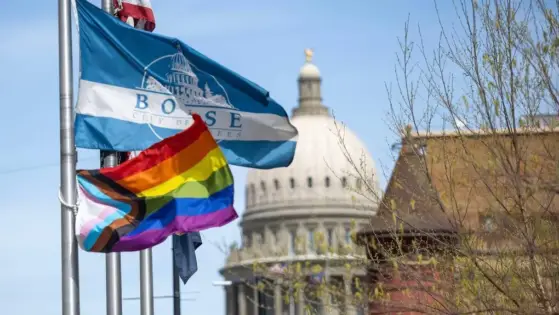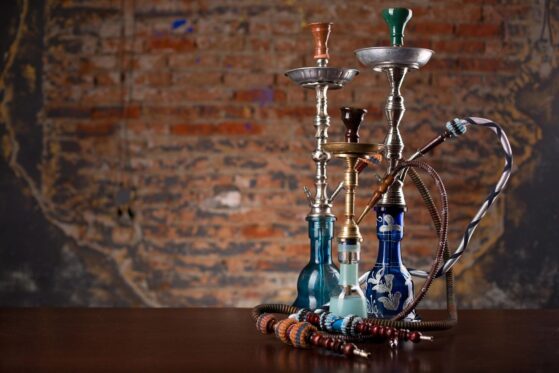 Well, kind of.
Well, kind of.
(USA Today) DENVER — Voters here approved making Denver the first major city to legalize small amounts of marijuana… The measure, which passed Tuesday with 54% of the vote, says adults 21 and older may possess up to an ounce of marijuana without penalty in the city.
It’s largely a symbolic victory, because Colorado state law still punishes possession of less than an ounce a misdemeanor punishable by a fine, and cities cannot make laws less restrictive than the state law. Also, such possession is still illegally federally.
Don’t expect clouds of marijuana smoke to fill Denver’s thin air. Mayor John Hickenlooper said police will continue to arrest and charge people for marijuana because state law still makes possession illegal.
But it still a huge victory because it shows that when put to a vote, the majority of a major American city can see how marijuana prohibition is a ridiculous and cruel policy.
Bruce Mirken, spokesman for the Marijuana Policy Project in Washington, D.C., said Denver’s vote will spur initiatives in other cities to legalize and regulate marijuana like alcohol or tobacco.
“It’s certainly likely to energize people. This is the wind in the sails of reform,” Mirken said Wednesday. “Rethinking marijuana prohibition is mainstream. This is the heart of America saying, ‘Hold on, maybe our current marijuana laws don’t make a lot of sense.’ And the fact is, they’re right.”
Part of what helped the marijuana campaign is the recent high-profile deaths by alcohol poisoning of binge-drinking Colorado college students.
(Boulder Dirt) CU freshman Lynn Gordon “Gordie” Bailey Jr. died of alcohol poisoning last year after drinking whiskey and wine in a Chi Psi tradition.
Last week, Phi Kappa Tau’s national leaders shut down their Boulder house for a series of violations. Several CU students were hospitalized for alcohol-related problems early Sept. 24 after attending University Hill parties, including those at Phi Kappa Tau or Sigma Pi.
Alcohol-related deaths in 1985 and 1994 prompted lawsuits against CU, a sorority and a fraternity. In the past 15 years, at least nine Boulder fraternity chapters have been shuttered by their national chapters, including four since last fall.
The outrage over the drinking deaths was seized upon by the proponents of the Denver marijuana proposition.
(Newsday) “We educated voters about the facts that marijuana is less harmful to the user and society than alcohol,” said Mason Tvert, campaign organizer for SAFER, or Safer Alternatives For Enjoyable Recreation. “To prohibit adults from making the rational, safer choice to use marijuana is bad public policy.”
Tvert argued that legalizing marijuana would reduce consumption of alcohol, which he said leads to higher rates of car accidents, domestic and street violence and crime.
The group criticized Mayor John Hickenlooper for opposing the proposal, noting his ownership of a popular brewpub. It also said recent violent crimes — including the shootings of four people last weekend — as a reason to legalize marijuana to steer people away from alcohol use.
This is such a brilliant strategy. Everyone has had an experience with an obnoxious or even violent drunk. Most people who drink have had experience with hangovers or even getting violently ill from alcohol. Meanwhile, even if some people have negative stereotypes of the “Cheech & Chong”-type munchie-scarfing pothead slacker, no one associates marijuana use alone with anti-social behavior by its users. In fact, one of the stereotypes we face is that of the “peace & love” hippie-dippie pacifist. The voters of Denver recognized that a Cheeto-stained tie-dyed Deadhead planted on his couch watching SpongeBob SquarePants while smoking a joint is nothing the city should worry about when there are college kids drinking themselves to death and violent drunks assaulting people and driving recklessly.
(USA Today) The mayor said he opposed the measure because he considers marijuana a “gateway” drug that can lead to harder substances and “much more self-destructive behaviors.” Hickenlooper acknowledged, however, that Denver’s vote “does reflect a genuine shift in people’s attitudes.”
Ooh, the gateway drug canard! C’mon, Mr. Mayor, you’ve got to do better than that. There are 14.5 million Americans who, according to the government’s own 2004 statistics, have smoked marijuana in the past month. In comparison, 467,000 used crack and 166,000 used heroin.
Plus, correlation does not prove causality. The only thing marijuana and hard drugs have in common is that they are both illegal. If we’re saying that one mild mood-altering substance can be a gateway toward destructive mind-altering substances, then we’d better start worrying about alcohol, nicotine, caffeine, sugar, and a whole host of pharmaceutical products. Nearly 100% of crank, coke, and smack users list caffeine as the first drug they ever ingested!
The only possible gateway marijuana has to hard drugs IS its illegality. The only place you can get pot is from the criminal underground, who also supply crank, coke, and smack. As a business, drug dealers want to maximize profits. Pot is a bulky, smelly drug with no physical addictiveness and lower profit potential than crank, coke, and smack — drugs that are much easier to conceal and store, and whose addictiveness guarantees a return customer. Marijuana regulated similar to alcohol would dry up demand for the drug dealer’s “loss leader” product and severely hurt their business by eliminating 14.5 million potential monthly customers.






